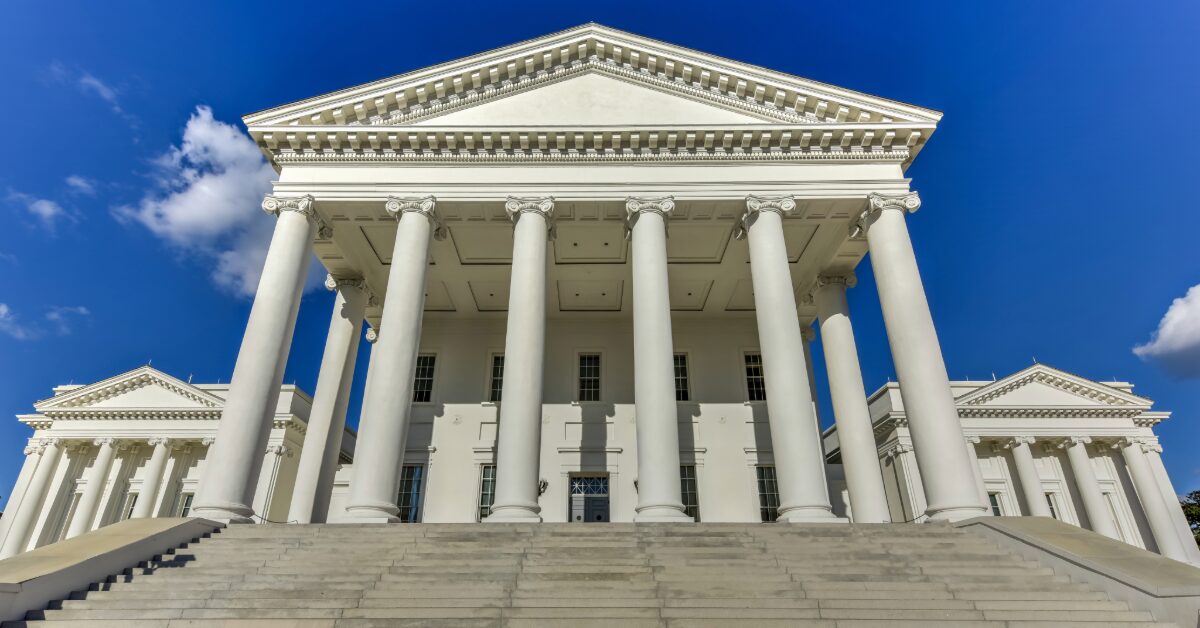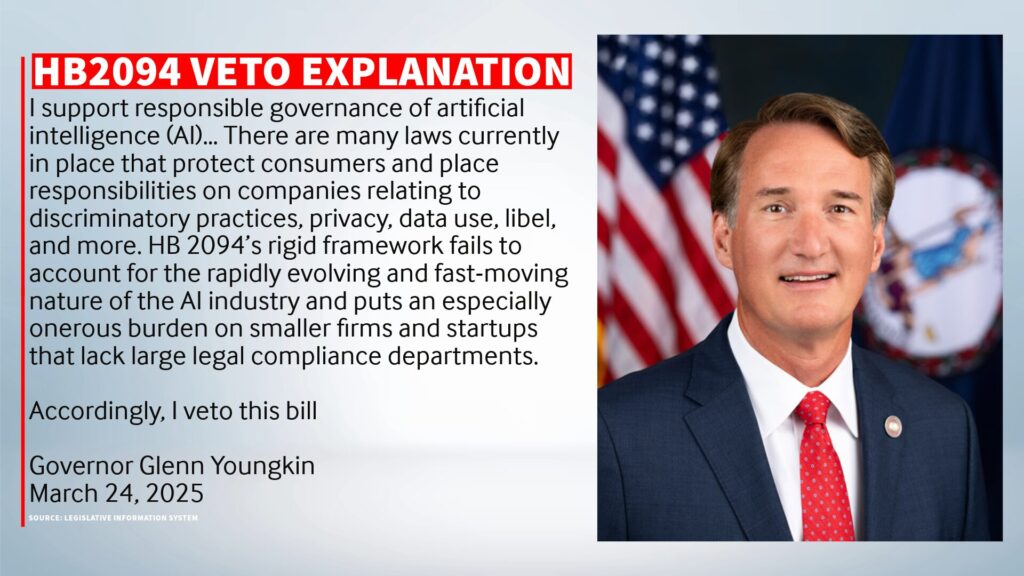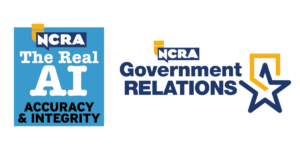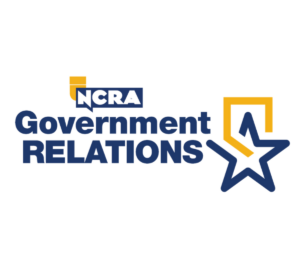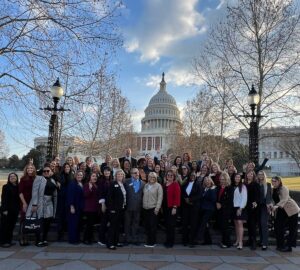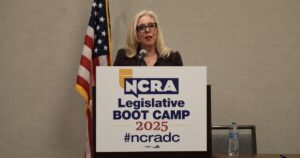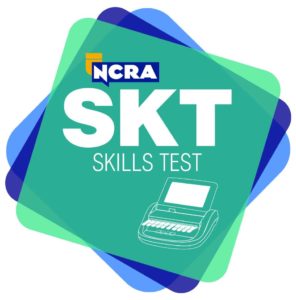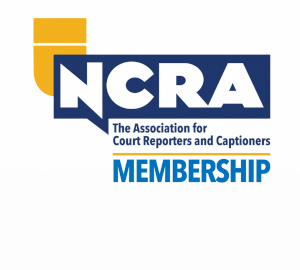On April 2 National Court Reporters Association (NCRA) State Government Relations Manager Colin Brehm waited in the lobby of the Virginia House and Senate chambers for members, staffers, or journalists who had either stepped away from the floor or were doing media hits for the one-day veto session.
“There were two artificial intelligence (AI) bills we initially approached the governor’s office on,” said Brehm. “One he vetoed the next day, and the other was returned to the General Assembly with his recommendation of requiring human oversight of AI in justice processes.”
Governor Youngkin would return HB1642 to the General Assembly on March 24 having announced HB2094 vetoed, writing there were existing guardrails in place that could address concerns relating to discriminatory practices, privacy, data use, libel, and more.
“For the past year NCRA’s Government Relations Department has implemented a bold, new strategy of incorporating the priorities shared by our members and not just management as part of our legislative vetting process,” Association President Keith R. Lemons, FAPR, RPR, CRR (Ret.), said. “I am confident that this momentum will not be lost and our federal efforts will only grow stronger relating to human oversight of AI in our judiciary.”
Out of 915 bills delivered to the Governor’s office, only 17 percent were returned with amendments, giving the bills a chance to become law should both chambers pass them again.
“This approach proved effective and offered the opportunity to stand out from others clogging the narrow corridors and waiting in the rotunda,” Brehm stated. “Information is a currency; tailoring why the recommendations seeking human oversight would be pertinent to their district or committee assignments helped build an instantaneous rapport allowing for a blunt conversation.”
By the time HB1642 was voted on at 8:04 p.m. Eastern, Senate Majority Leader Scott Surovell assured his caucus colleagues that the governor’s recommendations were reasonable to support. As a result, a piece of legislation returned by a republican governor to a state legislature with democratic majorities in both chambers passed unanimously in a rare but refreshing moment of bipartisanship.
“I commend Virginia for implementing human oversight of AI in judicial processes,” NCRA Executive Director Dave Wenhold, CAE, PLC, said. “This bill will be the first example of how to regulate AI while safeguarding our judiciary, but certainly not the last.”
The evening the Senate passed HB1642, it was reenrolled, having been signed by House Speaker Don Scott and Lt. Governor Winsome Earle-Sears in her capacity as President of the Senate, into law with an effective date of July 1, 2025. This marks the first state law mandating human oversight of AI in judicial processes in Virginia.

